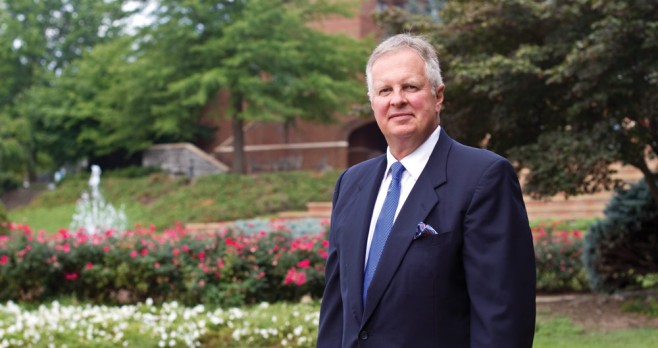
Loren Swartzendruber '76, MDiv '79, DMin
Uncle William did not look like a hero to me when I was a child. As I got older, I came to realize that this Iowa farmer had been one of hundreds of young men who served the nation during World War II by tending to people who previously had been treated as beneath “the least of these.” William H. Nisly was a conscientious objector in Civilian Public Service from Oct. 3, 1942 to March 1, 1946. Much of that time, he was an attendant in the Kalamazoo State Psychiatric Hospital in Michigan.
When Uncle William returned to Iowa after the war, he talked about the deplorable conditions he had seen in Kalamazoo. He spoke about how he and his fellow conscientious objectors had tried to improve these conditions with simple kindness, despite severe staff and material shortages. Today, the importance of “kindness” in dealing with mental illness is disputed by no one. But this wasn’t the case 70 years ago, as the nation discovered when the conscientious objectors helped draw attention to widespread mistreatment of mental health patients.
At least 29 alumni – counting those who came to EMU either before or after the war – served in one of the 22 mental health facilities staffed by Mennonite Central Committee. It is no accident that in the late 1940s, the Mennonite church began to take steps to establish model programs for mental health care. At one of these programs, Prairie View Behavioral Health Center in Newton, Kansas, my wife Pat served as vice president from 1994 to 2003, after having begun her career as a psychiatric nurse at the University of Iowa Psychiatric Hospital.
Many of EMU’s graduates have interned or worked in one of these model programs, including one of my children, Angela Hackman, a graduate of Hesston College in 2001, EMU in 2003, and finally the University of Pennsylvania, where she earned an MSW. Angela is employed at the Penn Foundation in Sellersville, 40 miles north of Philadelphia.
Here at EMU we are continuing the tradition of concern for mental health through our psychology department, applied social sciences department, and master’s in counseling program. We aim to remain on the forefront of this field, as demonstrated by an unprecedented conference at EMU in the spring of 2011 on the theory of “Attachment.” More than 1,000 people came to hear distinguished speakers discuss current neurological and psychological research showing that healthy attachments are crucial for humans to survive and flourish. Christians, of course, have been saying this for millennia, but it is gratifying to see our beliefs in love and community confirmed by science.
I hope you will read these pages with appreciation for the footsteps in which we are walking as we reflect on the dramatic overhaul of mental health care since 1945 and continue to strive for improvement.

Loren Swartzendruber
President